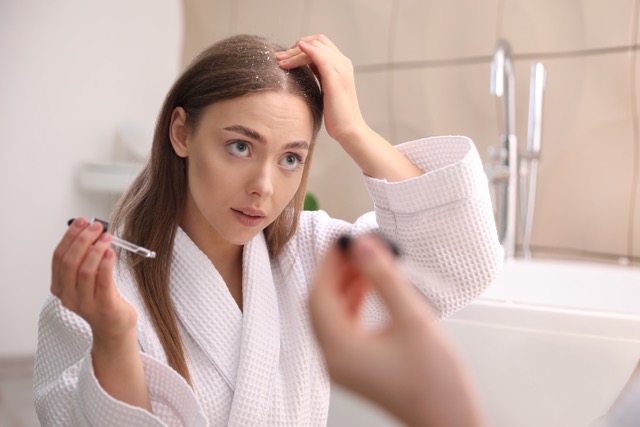Scalp Oiling, Is It Approved by Our Trichologist?
Scalp Oiling, Is It Approved by Our Trichologist?

In the realm of hair care rituals, scalp oiling stands as a time-honored tradition revered for its ability to promote healthy hair growth, nourish the scalp, and impart lustrous locks. Rooted in ancient practices and embraced by cultures worldwide, scalp oiling has transcended generations, evolving into a cherished beauty ritual cherished for its simplicity and effectiveness. However, beneath its seemingly beneficial facade lie potential risks and adverse effects that merit closer examination. While scalp oiling can offer certain benefits when performed correctly, it is usually not recommended by our trichologist and it’s essential to acknowledge and understand the negative impacts it can have on scalp and hair health.
Clogged Follicles and Shedding.
Contrary to its intended purpose of promoting hair growth, scalp oiling done incorrectly or excessively can actually contribute to hair loss. When oils are too heavy or not properly removed from the scalp it can suffocate the hair follicles, inhibit oxygen and nutrient delivery, and weaken the hair shaft, leading to breakage and shedding. Excessive oiling of the scalp can lead to clogged pores and hair follicles, trapping dirt, dead skin cells, and bacteria. This buildup can result in Scalp Folliculitis (scalp pimples), irritation, inflammation, or bacterial or fungal infections.
Increased Dandruff and Flat Hair.
Overapplication of oils can weigh down the hair, leaving it greasy, limp, and lacking volume. This can be particularly problematic for individuals with fine or thin hair, as heavy oils may exacerbate flatness and make styling difficult. While scalp oiling is often recommended to alleviate dry scalp conditions like dandruff, it can paradoxically exacerbate the problem for some individuals. Certain oils, especially those with high oleic acid content like coconut oil, can disrupt the scalp’s natural microbial balance, leading to increased dandruff and itching.
Residue on Scalp Treatment.
If scalp oiling is something that is embedded in your culture or something you are unable to use topical hair growth products like Minoxidil, deep cleansing your scalp regularly is essential to the maintenance of your scalp health. Capilia Trichology’s Residue on Scalp Treatment utilizes series of shampoos and soaking stages using all natural ingredients to lift and deep clean, thick residue off the scalp. Adding a treatment like this into your scalp routine can make sure your follicles are clear and clean optimizing product penetration and allowing the new hair to grow.
Conclusion.
While scalp oiling has its allure and benefits, it’s essential to approach this practice with caution and awareness of its potential negative effects. By understanding the risks associated with scalp oiling and adopting safe and mindful practices, individuals can enjoy the nourishing benefits of oils without compromising scalp and hair health. Ultimately, moderation, choosing non comedogenic oils, and integrating at home scalp health products such as Anti-Residue shampoos and Medicated shampoos can assist in harnessing the positive aspects of scalp oiling while mitigating its adverse consequences.
Click Here to shop.
